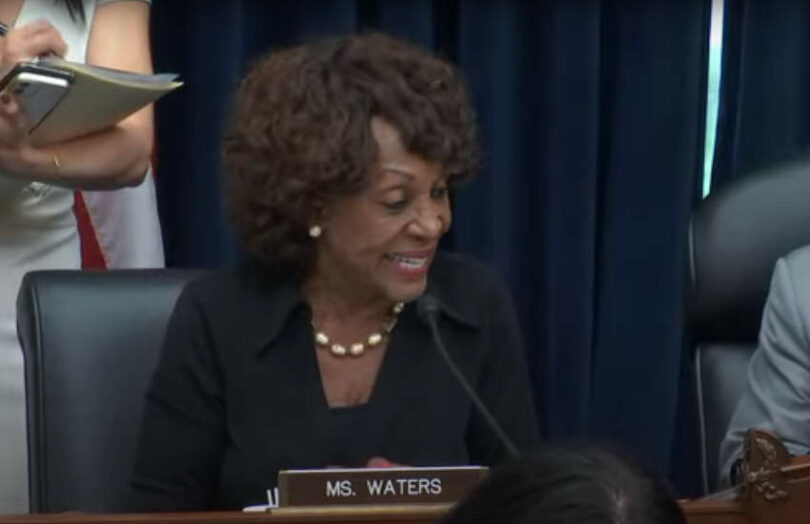A markup session on the Stablecoin Bill in the U.S. House Financial Services Committee ended with a vote in favor of the Bill, despite significant objections from Democrats. The Bill is still subject to a full House vote with ongoing bipartisan negotiations, as well as subsequent consideration by the Senate and the President.
It was a chaotic process with considerable conflict. Republican Committee Chair Patrick McHenry accused the White House of scuppering a bipartisan deal. Ranking Member Representative Waters was very frustrated over confusion about which version of the Stablecoin Bill was under discussion and suggested postponing the markup but was outvoted.
State stablecoin powers versus the Federal Reserve
Despite her anger, Waters made the dividing lines clear. Top of the list are two related issued regarding the extent of powers handed to States and the limited involvement of the Federal Reserve. “Republican McHenry’s Bill promotes a race to the bottom by creating 58 different licenses,” she said.
This same issue was raised in letters last week from the American Banking Association (ABA) and the Credit Union National Association (CUNA). Both called for at least the same level of federal supervision over stablecoins as state-chartered banks and credit unions.
“Texas, for example, would have no ability to stop coins from New York being issued in their State,” said Waters. “The Bill undermines strong reserve requirements by allowing any federal and state payment stablecoin regulator to unilaterally expand the list of eligible reserve assets without restriction at any time.”
The version of the Bill under discussion lacked support from the White House, the Federal Reserve and the Treasury.
Waters quoted a discussion with Federal Reserve Chair Powell, where he apparently said, “We do see payment stablecoins as a form of money. And in all advanced economies the ultimate source of credibility in money is the central bank and we believe it would be appropriate to have a robust federal role in what happens in stablecoins going forward. That leaving us with a weak role in allowing a lot of private money creation at the state level would be a mistake.”
However, Republican whip Emmer wants even less Federal Reserve involvement. “I think the Fed has its hands full already, barely able to sufficiently supervise the banks its responsible for,” said Emmer. “Giving the Fed more authority to completely regulate a new sector would not only overwhelm the Fed, but it’s going to kill innnovation. We’d essentially secure a market monopoly for the large incumbent stablecoin issuers.”
Common ground on BigTech involvement
The Bill version under discussion would allow commercial entities such a BigTech to be involved with stablecoins. Tackling this point had support from both parties.
“Just this week, Twitter rebranded itself and the CEO openly announced her desire to begin growing into the payments and banking space. It’s not a mystery what they will do next,” said Republican Congressman Norman.
He continued, “We are currently in the midst of holding Mark Zuckerberg in contempt of Congress while simultaneously in this Bill handing him the keys to an unregulated marketplace where he will have a competitive advantage against credit unions and community banks.”
Waters concurred. “Our concern is that the Bill’s provision would make it significantly easier for a tech company like Twitter X to establish itself as a global payments provider via the issuance directly or indirectly of a stablecoin,” she said. “A dicey proposition in general and frightening proposition given the way the Bill would fail to give regulators the necessary tools and authorities to reign in the risks.”
There are still several other contentious issues. Democrats want to reinstate clauses relating to exploring a CBDC, diversity and inclusion, and a ban on self custody wallets.
Representative Vargas commented on the animosity during the session. “I dont think this is a very propitious start to this process today.” That said, both sides still appear willing to work on a bipartisan deal.






